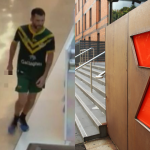
Alrighty, folks. We’re back at it again answering all your most burning home buyer / home loan / fixed / variable related questions. It might be a confusing world out there, but snapping up that dream house needn’t be so complicated. If you’re a wannabe home owner, soon-to-be mortgage repayer or current deposit saver, you might want to fix up and look sharp because we chatted ME Bank’s General Manager of Home Loans and he’s spilled all the home loan tea.
Am I more likely to get a home loan if I cut out UberEATS, Netflix and my online shopping habits?
Good question, gang. I was wondering the same thing considering I currently have Stan, Prime, Netflix, Hulu and Disney+ (don’t judge me). According to ME’s man about home loan town, Andrew Bartolo, your spending history definitely comes into play but it’s more the big picture rather than those individual Amazon purchases.

“You’ll want to manage your overall spending, show consistent savings, and grow your deposit. A good rule of thumb is to build up at least three months worth of steady savings,” he says. Three months – that sounds doable, right? It is if you cut down on your streaming services and stop getting takeaway five times a week, I guess.
“Managing these purchases will show you’ve got a good savings habit, which translates to you being a better potential borrower.” Okay you heard it here first, people.
What the actual heck is the difference between fixed and variable home loans?
I tried googling the answer to this question to no avail. If anything, I just learnt a lot about the US system and none of it helped my Aussie home loan dream. If you’re scouring the internet looking for buying advice, look no more. Bartolo has the answers.
“Here’s the simple explanation: fixed and variable refer to the home loan interest rate, which determines how much your repayments are. The lower the interest rate, the less you pay. Now for the fun bit. As the borrower, you get to choose whether you want your interest rate to be fixed or variable. One is locked in and won’t change for the set period – that’s fixed. The other can go higher or lower – that’s variable,” he says.

Bartolo says some people choose fixed rates because they want a little certainty on how much their repayments are gonna be. A little bit of certainty in an uncertain future, ya dig? Other folks go the variable route because they think the interest rates could drop and they don’t want to miss out on lower repayments. They’re the cowboys of the arena. To quote Rafiki from the Lion King: The choice is yours.
How much will my HECS debt actually affect my borrowing power?
Okay good news first – actually having a HECS debt shouldn’t exclude you from getting a home loan. BUT there is a chance that your cheeky little arts degree could reduce your borrowing power. Oopsie daisy.
But before your freak out, let’s deep dive first. According to Bartolo, the reduced borrowing power makes sense because HECS repayments reduce your overall income. The way to offset this is to reduce your spending. “Before you worry about HECS, concentrate on paying down other debts like credit cards and car loans,” he advises.

On the plus side, having that university qualification might actually make you more employable and boost your earning potential, so it could be a worthwhile long-term investment to helping you buy a house further down the track. Bueno news for the educated among us!
If you’re looking for more house deposit info, head on over to ME Bank or chat to one of ME Bank’s Mobile Bankers for expert advice. May the savings be ever in your favour.







